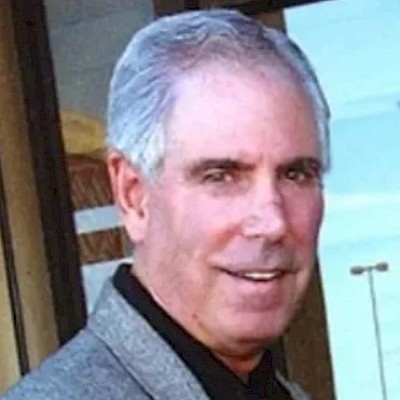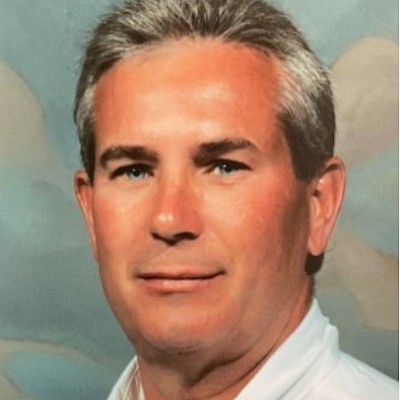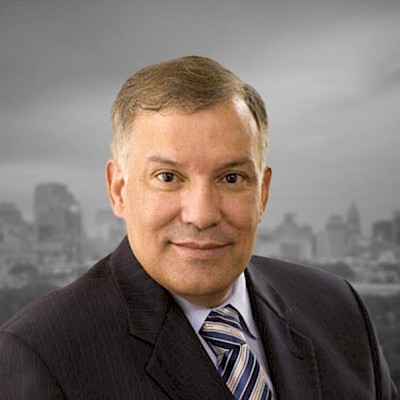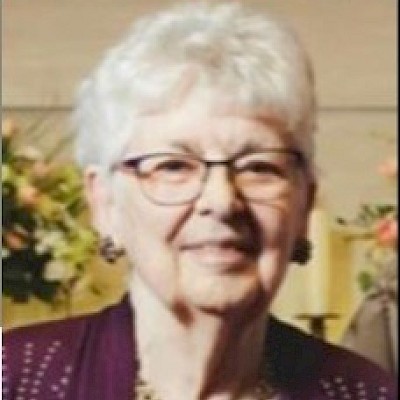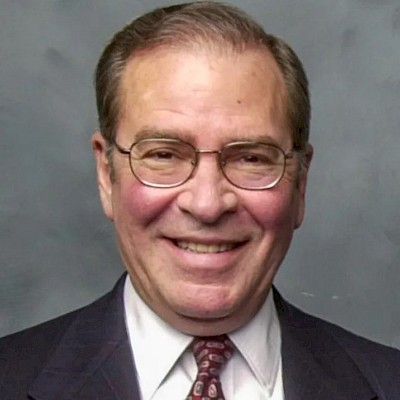One of Pittsburgh’s most transformational restaurant figures, Antonio “Toni” Pais passed away on July 7 from complications of Parkinson’s disease. He was 69.
Mr. Pais arrived in Pittsburgh in 1978. He took a job as maître d’ of La Normande, the boundary-pushing Oakland restaurant that set the standard for city dining at the time. It was the first step in a 45-year culinary journey in Pittsburgh for the chef and restaurateur born in Cascais, Portugal, in 1954.
Along the way, Mr. Pais ran the front of house of several storied establishments, opened and operated three restaurants and carried the mantle of upscale European dining across generations.
“He started his career as a professional waiter. It’s considered a trade in Europe, and he brought that professionalism here to Pittsburgh,” says Jean-Marc Chatellier, owner of Jean-Marc Chatellier's French Bakery in Millvale; the two worked together at La Normande and remained friends throughout the years, bonded by a love of food and soccer.
For the past two decades, the charismatic bon vivant of Baum Vivant did all of it while battling Parkinson’s disease.
Lover of food, life and soccer
Mr. Pais met Becky Friday in 1986 while playing racquetball.
“He wiped the sweat off my brow and asked if he could take me on a picnic. We had a beautiful time together under the big red tree in Mellon Park,” she says. Her surname would change a few years later when the two married.
Becky Pais recalls how the two of them grilled sardines at a 300-person party for their wedding, held at a friend’s home in Schenley Farms. As Mrs. Pais says, it was par for the course for the couple, who always had a great time throwing a party for people.
“We had a beautiful journey the whole way. We had such a lovely ride,” she says.
That ride featured uncommon intertwinement between personal and professional lives, with the couple opening and operating Baum Vivant and Cafe Zinho in Shadyside and Cafe Zao Downtown, all three playing a significant role in the preservation and growth of Pittsburgh’s restaurant culture.
“Toni was so happy to offer his brand of hospitality to people. He loved the restaurants. We had a fun, gorgeous time doing what we did,” Becky Pais says.
Mr. Pais worked long hours but still found time to celebrate his other passion: soccer. He participated in competitive recreational leagues, sometimes playing with Pittsburgh’s hospitality industry colleagues.
“We would work until whenever and stay up past midnight and then go play soccer the next morning,” says Abdel Khila, who initially met Pais on a soccer field.
The Morocco-born chef worked for Mr. Pais in 1998 as a chef at Baum Vivant and later ran the kitchen at Cafe Zinho prior to opening Kous Kous Cafe in Mt. Lebanon in 2009.
When he wasn’t playing the sport, Mr. Pais watched professional matches, including those of S.L. Benfica, a top-tier team based in Lisbon.
‘No job too big or too small’
Becky and Toni Pais launched their first restaurant, Baum Vivant, in Shadyside in 1992, reclaiming space for a then-fading fine dining scene in Pittsburgh.
“We scrubbed the floors. We reupholstered the furniture,” says Mrs. Pais. “Toni was so proud and so humble, no job was too big or too small for him.”
In her first review of Baum Vivant in 1993, longtime Post-Gazette dining critic Woodene Merriman declared the lobster bisque the best she’d ever tasted and praised the beef Olympia, but she noted that the tables were packed tightly together.
Ms. Merriman returned five years later, giving the restaurant four stars, describing the food as “almost flawless” and announcing it as “one of the city’s best.”
Mr. Pais was among the few restaurateurs buying locally grown ingredients when industrial food processing reigned supreme. By purchasing produce from pioneering Pittsburgh-area farmers such as Darrell and Linda Frey’s permaculture-focused Three Sisters Farm in Sandy Lake and lamb from Keith Martin’s Elysian Fields in Waynesburg, Mr. Pais helped lay the framework for today’s farm-to-restaurant economy in Pittsburgh.
“If you were a farmer or a food seller and you had an ingredient you think is unique or unknown by most chefs because they wouldn’t know what to do with it, go see Toni. His eyes would twinkle right away,” says Mr. Khila.
The restaurant earned Mr. Pais numerous accolades, including Pittsburgh's first-ever James Beard Chef of the Year nomination in 2002 and an eight-year run as Pittsburgh Magazine’s Restaurant of the Year.
“He kept the mantle of high level European dining in Pittsburgh. Everything was professional at Baum Vivant,” says Mr. Chatellier, who worked with Toni Pais at La Normande in the 1980s.
Toni and Becky Pais expanded their reach in 1999 to open Cafe Zinho. The cozy yet boisterous BYOB on Spahr Street in Shadyside allowed Pais to offer a more casual take on Mediterranean cuisine. Though the space remained lively with a festive, coastal atmosphere throughout its run, it eventually became a destination for eaters looking for attentive, fine-dining standards as Pittsburgh’s restaurant culture (and restaurant culture in the United States) shifted toward a more informal dining experience.
In 2004, the Pittsburgh Cultural Trust brought Toni and Becky Downtown to open Cafe Zao, a hip, Portuguese-inspired restaurant meant to be a cornerstone of the revamped Cultural District. The menu at the 3,000-square-foot restaurant featured dishes including caldo verde, a potato and kale soup popular in Northern Portugal, and chicken Maputo, a simmered peri-peri chicken dish named after the capital of Mozambique.
Life-changing surgery
Mr. Pais bounced between all three establishments until 2006, when he and Becky decided to close Baum Vivant, citing a massive construction project on Baum Boulevard.
He began showing symptoms of Parkinson’s disease a year prior to closing Baum Vivant. By 2011, the year he and Becky closed Cafe Zao, the disease had progressed to the point where it was affecting his ability to perform his vocation.
“He fought so hard during his illness,” she says. “He never complained. He just kept going even when it was too hard for him to do much of anything.”
Mr. Pais still went grocery shopping and cooked as much as he could for Cafe Zinho, but he was increasingly limited to participating from the sidelines.
“Cooking was his joy. To please people with food was his joy. It was a way to survive. That was it. He had Parkinson’s, doesn’t matter. He still wanted to cook. He was still there,” says Mr. Chantillier.
In 2012, Mr. Pais became one of the first Parkinson’s patients in Pittsburgh to be given deep brain stimulation surgery under general anesthesia. Until then, patients needed to remain awake throughout the process while doctors implanted electrodes in certain parts of the brain and ran wires to a pacemaker-like device in the chest. The implant allows for electrical impulses to stimulate dopamine production, significantly soothing the symptoms of Parkinson’s.
Mr. Pais at the time said he felt his strength coming back to him just moments after Dr. Mark Richardson, then co-director of functional neurosurgery at UPMC, completed the operation with the assistance of an MRI machine.
“I felt it [Parkinson’s] releasing me. I was in control again,” he told the Post-Gazette in 2013.
He returned to the kitchen at Cafe Zinho shortly after the surgery, which was deemed an overwhelming success. For the next 10 years, he continued to operate the restaurant with a team of chefs under his wing.
Always a mentor
Throughout his career, Pais mentored generations of Pittsburgh restaurant workers, both front- and back-of-house. He also served as an informal instructor at the now-closed Art Institute of Pittsburgh and Community College of Allegheny County’s Culinary Arts Program.
“Working with Toni was like getting a one-on-one, four-year education at the Culinary Institute of America, but free of charge. Toni’s knowledge of wine and cuisine were legendary,” writes Rob Cort, Mr. Pais’ primary dining room captain at La Normande, in a text message.
“Toni set me on the path I’m on today. I wouldn’t be in the industry in the way I am because of him,” says Tzveti Gintcheva, owner of De Pan Y Queso Bocadillos Bar in Marshall-Shadeland.
Ms. Gintcheva started working at Cafe Zinho shortly after she immigrated to Pittsburgh from her native Bulgaria. She later joined Mr. Pais Downtown as general manager of Cafe Zao, where he sponsored her for an H-1B visa.
“Pittsburgh enjoyed him as a culinary talent and work as a restaurateur, but at the same time he was so humble that you would never know how many lives he touched over the years. He was a force in the industry,” she says. “He stood up for immigrant workers, too.”
Mr. Pais also set an example of how to run both front- and back-of-house. Numerous former employees say he worked with a gentle touch that was uncommon in higher-end restaurants, where a hierarchical kitchen brigade system and the verbal abuse that often came with it were the norm.
“He was always so good to the cooks — so kind, so fun, so patient and mostly, so generous,” says Mary Spiro.
Ms. Spiro, a line cook at La Normande from 1985-88, says she still recalls a paella he made for a staff meal nearly 40 years ago. “To this day, the memory of the seafood and the saffron and the beautiful color of the broth still make me smile,” she says.
A long legacy
Mr. Pais kept Cafe Zinho relevant during Pittsburgh’s mid-2010s restaurant revival, even as hipper joints opened (and later closed) throughout the city.
Three years ago, he had emergency hernia surgery, and doctors discovered rectal cancer. His chemotherapy port proved to interact poorly with the electrodes in his Parkinson’s treatment.
“Anytime he moved, he was electrocuted,” Mrs. Pais says.
Doctors had to remove the port and try to treat his cancer in other ways. Mr. Pais was in and out of medical treatment, facing a steep decline in his health.
The couple decided to close Cafe Zinho in February 2023.
“It was very tough for us to make this decision. But, with my health the way it is, I can’t operate the restaurant the way I want to,” Mr. Pais said at the time.
With his health failing, his step-son, Josh Masslon, organized a GoFundMe campaign that raised nearly $27,000 to send Pais to Portugal one final time. Mr. Massolon, an intensive care nurse, accompanied him for several weeks in October and November so that his step-father could say goodbye to family, friends and his native country.
“They had a wonderful trip. I’m so glad they had that opportunity,” says Mrs. Pais. “This dear, beautiful man had to suffer for way too long.”
Toni Pais is survived by his wife, two step-children, two sisters and a large extended family.



